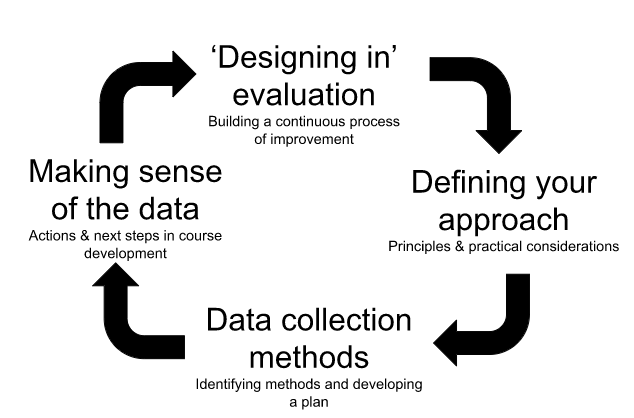Determine how you will evaluate the effectiveness of your module
Effective module design is nearly always iterative. Evaluation is a vital element of design, giving information as to how well the intended learning outcomes have been achieved, how effective module design is in scaffolding student achievement towards these outcomes, and in understanding individual and cohort experiences. Module Evaluation Questionnaires and assessment results provide some insight, but other evaluation techniques (eg mid-module evaluation; in-class polling) can help in triangulation and highlighting early any issues.
Evaluation is most successful when it is built into the planning process of module design. Of course, you may need or wish to alter your evaluation methods during the progress of teaching (and it is perfectly possible to do so), but ideally points and purposes of evaluation will be planned in advance. A potential cycle of evaluation may, then, look something like the following (Walker, 2020):

You can explore the stages of this cycle using the pages that follow:
__
Walker, R. (2020). Webinar: Evaluating online learning. York: University of York, 23 July 2020.
